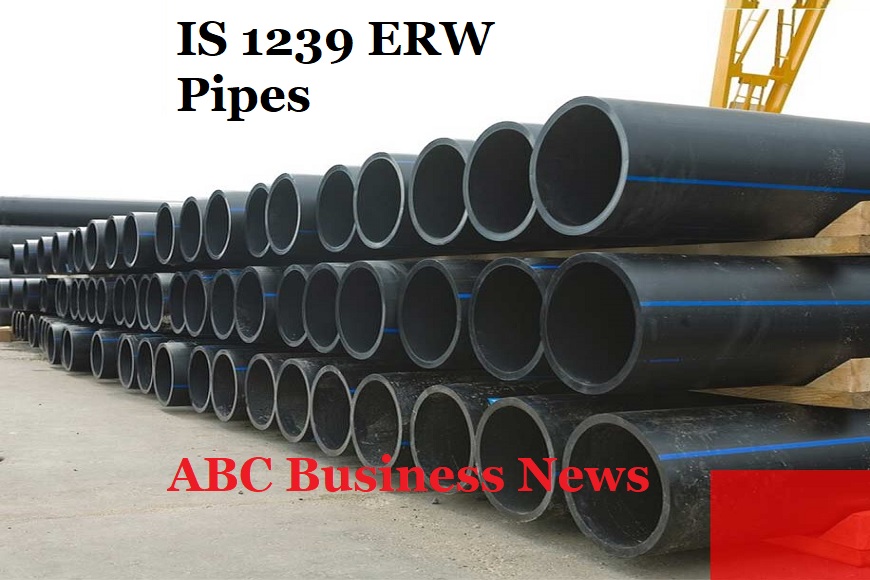Manufacturing Process of IS 1239 ERW Pipes
The Manufacturing Process Of IS 1239 ERW Pipes Involves Several Stages That Ensure The Pipes’ Strength And Durability.
Let’s Explore The Key Steps Involved:
Raw Material Selection:
The first step in the manufacturing process is carefully selecting high-quality steel as the raw material. The steel used for IS 1239 ERW pipes should have excellent tensile strength, ductility, and weldability to meet the desired specifications.
Slitting and Uncoiling:
Once the raw material is selected, it goes through the process of slitting and uncoiling. This process involves cutting large steel coils into narrower strips, which will be used to form the pipes. Slitting and uncoiling ensure the proper dimensions of the strips, which are crucial for the subsequent stages.
Forming and Welding:
After the slitting and uncoiling process, the steel strips are formed into a circular shape using a series of rollers. This shaping process ensures the uniformity and precision of the pipes’ dimensions. Subsequently, the edges of the formed strip are welded together using the electric resistance welding technique, which creates a strong and reliable bond.
Heat Treatment:
Once the welding is completed, the pipes undergo heat treatment to relieve residual stresses and enhance their mechanical properties. Heat treatment involves subjecting the pipes to controlled heating and cooling processes, which improve their strength and flexibility.
Finishing and Testing:
After the heat treatment, the pipes go through various finishing processes, such as cutting to desired lengths, removing burrs, and straightening. Additionally, rigorous testing is conducted to ensure the pipes’ compliance with quality standards. This testing may include non-destructive tests, such as ultrasonic testing, to detect defects or imperfections.
Quality Standards of IS 1239 ERW Pipes
IS 1239 ERW Pipes Adhere To Strict Quality Standards For Reliability And Performance. These Standards Include:
Bureau of Indian Standards:
The Bureau of Indian Standards (BIS) sets the quality standards for IS 1239 ERW Pipes. BIS is a national standards body that ensures the quality, safety, and reliability of various products and services in India. Compliance with BIS standards is essential to guarantee the integrity and durability of the pipes.
Dimensional Standards:
IS 1239 ERW pipes are manufactured according to specific dimensional standards to ensure uniformity and compatibility. These standards specify the outer diameter, wall thickness, and length of the pipes, ensuring that they meet the requirements of different applications.
Chemical Composition:
IS 1239 ERW pipes undergo rigorous testing to ensure compliance with the specified chemical composition. The composition of the steel used in these pipes is crucial as it determines their mechanical properties and corrosion resistance. By adhering to the prescribed chemical composition, IS 1239 ERW pipes offer consistent performance and longevity.
Mechanical Properties:
The mechanical properties of IS 1239 ERW pipes, such as tensile strength, yield strength, and elongation, are carefully monitored during the manufacturing process. These properties are essential for determining the pipes’ ability to withstand pressure, stress, and external forces. IS 1239 ERW pipes provide strength and reliability in demanding industrial environments by meeting the required mechanical properties.




